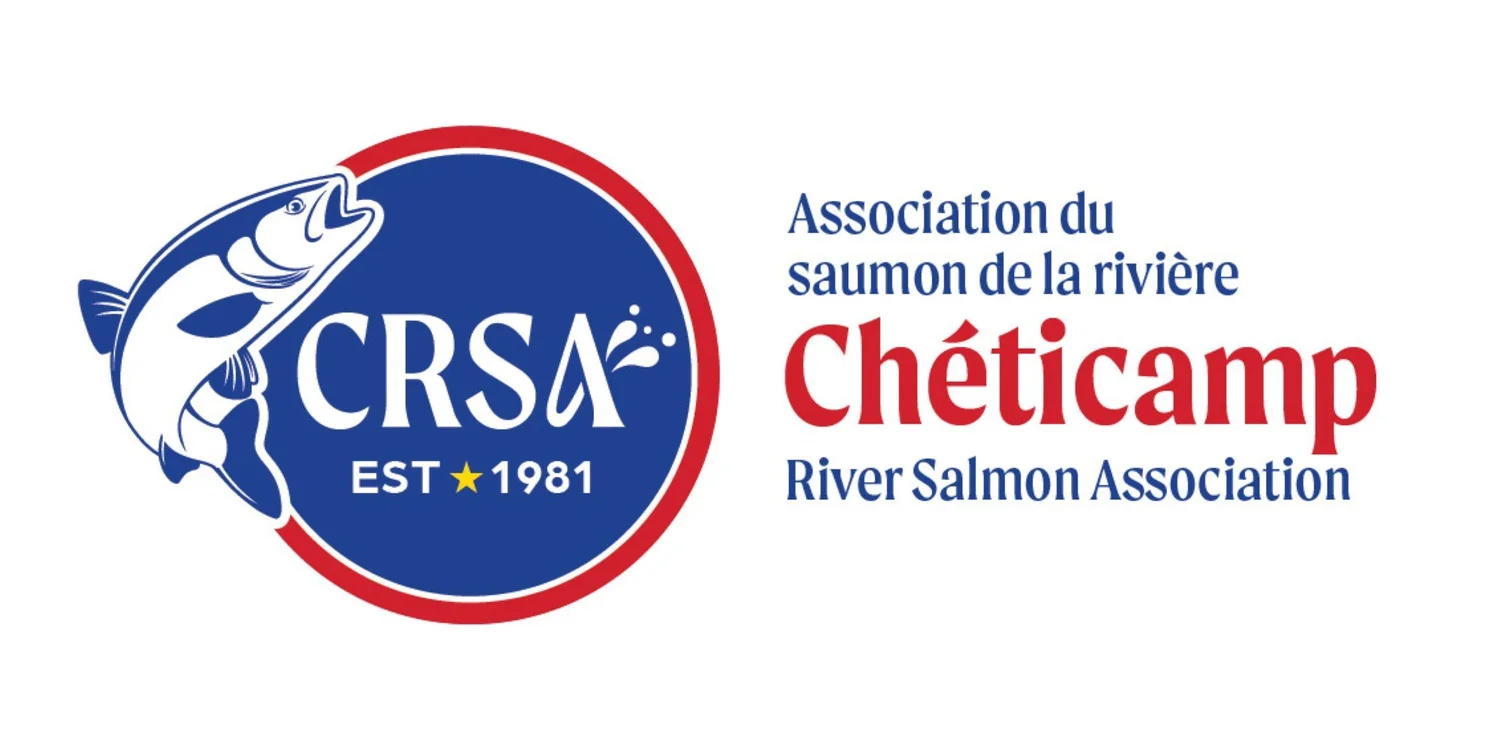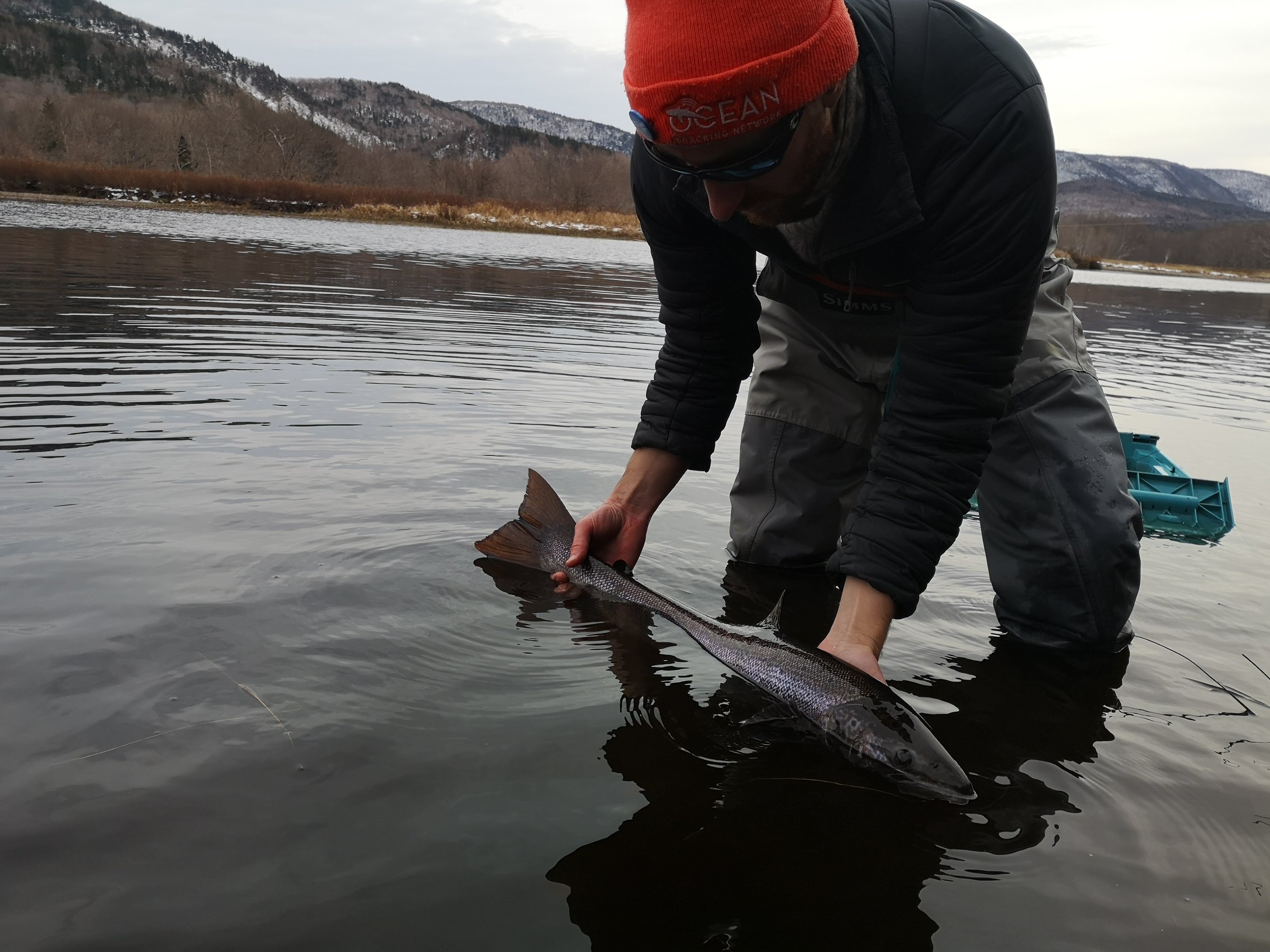Kelt tagging on the Cheticamp River
The Cheticamp River Salmon Association (CRSA) joined with Dalhousie University, Cape Breton Highlands National Park (CBHNP), and the Ocean Tracking Network (OTN) in a project to tag kelt salmon on the Cheticamp River. The research project, led by Dalhousie University Masters student Natalie Koopman and Drs. Robert Lennox and Glenn Crossin, will use acoustic telemetry to help assess the effectiveness of CBHNP’s Atlantic salmon recovery project on Clyburn Brook.
Dr. Robert Lennox with Dalhousie University releases one of the salmon tagged in December on the Cheticamp.
CBHNP is four years into a project that focuses on the use of smolt-to-adult supplementation – a process that in this case involves catching wild smolt from the Clyburn, raising them at Dalhousie University’s Aquatron laboratory, a land-based freshwater facility, and then returning the adult fish to their native river. By increasing the number of spawners, Parks Canada’s goal is to restore a self-sustaining population of Atlantic salmon in Ingonish’s Clyburn Brook. The project team will use the Cheticamp River wild salmon as a sort of control group and compare their behavior to those of the Clyburn.
Sarah Penney with CBHNP and CRSA’s President Rene Aucoin net a salmon above the Cabot Trail bridge.
While 242 salmon have been released as part of the Clyburn program, little is known about their survival, behavior, and reproductive effort so this fall 30 were implanted with acoustic transmitters prior to leaving the Dalhousie University Aquatron. This research project is using acoustic telemetry to help fill in these knowledge gaps. The research team also installed a series of acoustic receivers on both the Clyburn and the Cheticamp to monitor the tagged fish. The Cheticamp River tagging occurred between December 7th and 10th.
Despite the wintery weather, the December kelt tagging was considered a success.
This tagging project was a first for the CRSA and an opportunity to collaborate and learn more about post-spawning behaviour and the migration of fish on the Cheticamp. Despite a slow start to the fishing – partially due to the weather and a lack of previous experience with kelt fishing on the Cheticamp – volunteer anglers captured a total of 17 salmon which were then tagged by the Dalhousie and Ocean Tracking Network team. This was considered a big success and plans are already being discussed for continued collaboration – and additional tagging – in the future.



